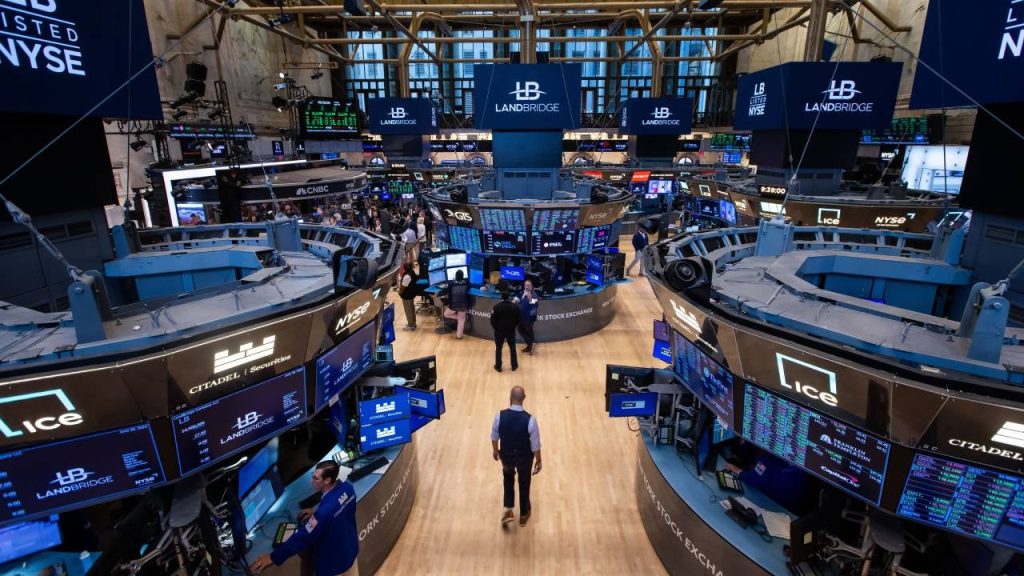The stock market has enjoyed a strong start to 2024, with the S&P 500 rising 14 percent in the first half of the year, but market analysts see the pace of gains slowing over the next 12 months, according to Bankrate’s Second-Quarter Market Mavens Survey. The analysts surveyed see the S&P 500 rising 4 percent over the coming year.
These market pros expect the S&P 500 will rise from about 5,461 at the end of the survey period to 5,663 at the end of the second quarter next year. It’s the 15th consecutive survey where the experts predicted a gain. The analysts also expect U.S. stocks to outperform international stocks, and growth stocks to outperform value stocks.
“The first half of 2024 will be hard to match for the coming six months. But that can also be seen as the market having already done the proverbial heavy lifting for the year,” says Mark Hamrick, Bankrate’s senior economic analyst.
“While our survey indicates some caution in the minds of professional investors both for the short and long-term, my sense is that they’d agree that trying to time the market is a fool’s errand. That’s a lesson of both recent and not-so-recent history,” Hamrick says.
Here are the key points from the Bankrate survey.
Forecasts and analysis:
This article is one in a series discussing the results of Bankrate’s Second-Quarter 2024 Market Mavens Survey:
Stocks to rise slightly over next 12 months, experts say
After strong performance in 2023 and the first half of 2024, analysts in the Market Mavens survey expect more muted returns in the coming year. The survey’s respondents expect the S&P 500 to climb 3.7 percent to 5,663 – up from 5,460.48 at the end of the survey period on June 28.
“Over the coming year, it appears likely that the Federal Reserve will be removing monetary restriction if inflation data continues to support a transition closer to the central bank’s 2 percent target,” Hamrick says. “That could be supportive of a favorable environment for equities, but growth and earnings are also part of the equation.”
Analysts remain ambivalent about five-year outlook for stocks
After the market’s strong run over the last 18 months, the pros surveyed by Bankrate remain ambivalent about how the market will perform over the next half-decade, compared to its historical returns of about 10 percent annually on average.
- 40 percent said returns over the next five years will be lower than long-term returns.
- 40 percent of respondents said returns will be about the same as their historical average.
- 20 percent said returns will be above the historical average.
Compare those figures with the results of the prior four Market Mavens surveys, as shown below. Analysts offered rationales for their decisions.
“We are late [in the economic] cycle and valuations are full, which means that more muted returns should be expected over the coming five years,” says Sameer Samana, senior global market strategist at Wells Fargo Investment Institute.
“It’s just a matter of time before the U.S. economy slows as a result of the Fed’s ‘higher for longer’ monetary policy,” says Sam Stovall, chief investment strategist, CFRA Research.
Other analysts see the potential for lower interest rates to bring returns near their historical norm.
“Market returns have been running hot the last few years as multiples have expanded,” says Patrick O’Hare, chief market analyst at Briefing.com. “We are starting from a point of higher valuations that should curtail return prospects, but with rates expected to be lower, we should be able to achieve total returns in-line with the historical average.”
U.S. stocks preferred over global stocks, pros say
While U.S. stocks are often the preference of the survey’s respondents, they are the overwhelming favorite in this quarter’s results:
- 90 percent of respondents favor U.S. stocks over the coming year.
- None prefer international stocks.
- 10 percent said the returns between the two would be about the same.
In the first quarter, 83 percent of the experts expected U.S. stocks to outperform international stocks, while 17 percent expected similar returns and none preferred international stocks.
Various reasons were given for the preference for U.S. stocks with the tech exposure available in the U.S. a top factor.
“The U.S. remains the most vibrant equity market as its technology innovation leads the world,” says Dec Mullarkey, managing director at SLC Management. “U.S. companies have also maintained high margins and delivered strong growth through difficult periods. As inflation cools and rates come down the U.S. equity market is well positioned for continued gains.”
“The U.S. has better growth prospects, and U.S. indices have exposure to a combination of technology-related companies that can’t be found anywhere else in the world,” Wells Fargo’s Samana said.
Some analysts cited elevated valuations in the U.S. as a concern.
“The U.S. has outperformed, but valuation is stretched,” O’Hare says. “Foreign markets might have lower valuations, but it won’t be a zero-sum investment game over the next 12 months.”
Market pros still prefer growth stocks over value stocks
With the U.S. economy remaining strong, most experts see growth stocks outperforming value stocks over the next year.
- 30 percent of respondents prefer value stocks to growth stock over the next year.
- 60 percent favor growth stocks to outperform value.
- 10 percent think returns will be about the same.
The percentage of respondents who prefer growth stocks edged up to 60 percent from 50 percent in the first quarter survey, while the percentage favoring value stocks inched slightly lower.
“With the Fed expected to normalize rates, equities should benefit and perform well,” Mullarkey says. “Earnings are improving and margins remain strong, which creates room for valuation expansion. Which is the critical driver of growth stock outperformance.”
Michael Farr, president and CEO at Farr, Miller & Washington, also sees growth stocks continuing their outperformance.
“The trend is your friend,” Farr says. “AI will be volatile, but new technology is disruptive and expanding rapidly.”
Samana sees a broadening of market performance over the coming year, with growth and value stocks returning about the same. “Broader economic and earnings growth should allow for a wider group of leaders to drive the next leg higher in markets,” he said.
Other analysts see value stocks as more attractively priced and set up for potential outperformance.
“Value holds the prospect (key word) for the greatest returns over the next 12 months, given the performance gap seen versus growth stocks,” O’Hare says. “That doesn’t mean, however, those prospects will be realized.”
“If economic growth holds up and rates come down, value would be the place to be for the best return prospects,” O’Hare added.
Charles Lieberman, chief investment officer at Advisors Capital Management, offered succinct reasoning: “Value is just too cheap relative to growth.”
-
Bankrate’s second-quarter 2024 survey of stock market professionals was conducted June 14-28 via an online poll. Survey requests were emailed to potential respondents nationwide, and responses were submitted voluntarily via a website. Responding were: Sameer Samana, senior global market strategist, Wells Fargo Investment Institute; Dec Mullarkey, managing director, SLC Management; Patrick J. O’Hare, chief market analyst, Briefing.com; Sam Stovall, chief investment strategist, CFRA Research; Brad McMillan, chief investment officer, Commonwealth Financial Network; Chuck Carlson, CFA, CEO, Horizon Investment Services; Michael K. Farr, president and CEO, Farr, Miller & Washington; Charles Lieberman, chief investment officer, Advisors Capital Management; Kim Forrest, chief investment officer/founder, Bokeh Capital Partners; Hugh Johnson, chief economist, Hugh Johnson Economics.
Editorial Disclaimer: All investors are advised to conduct their own independent research into investment strategies before making an investment decision. In addition, investors are advised that past investment product performance is no guarantee of future price appreciation.
Read the full article here










